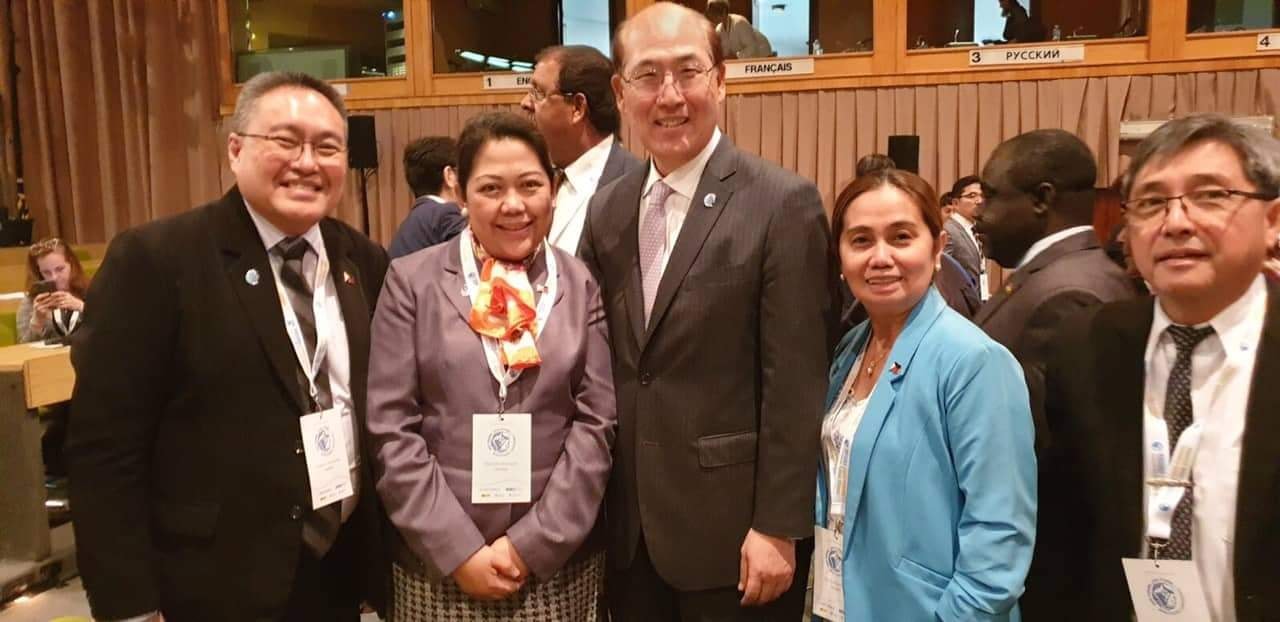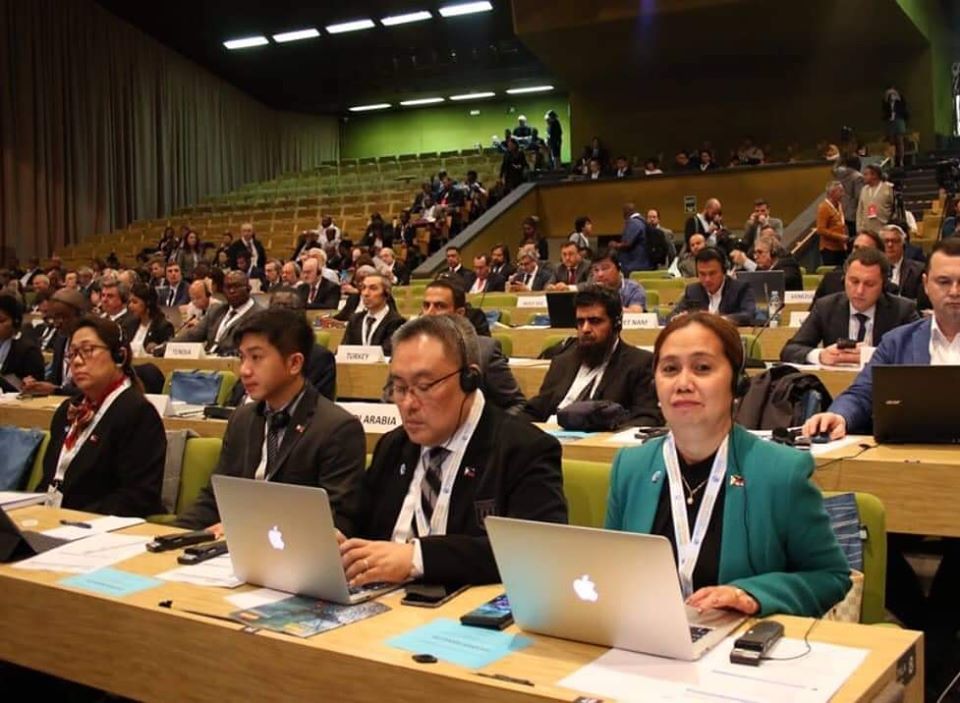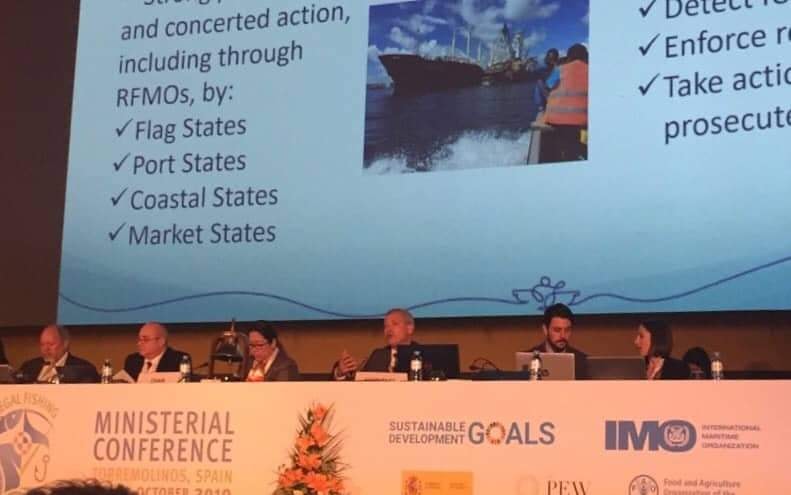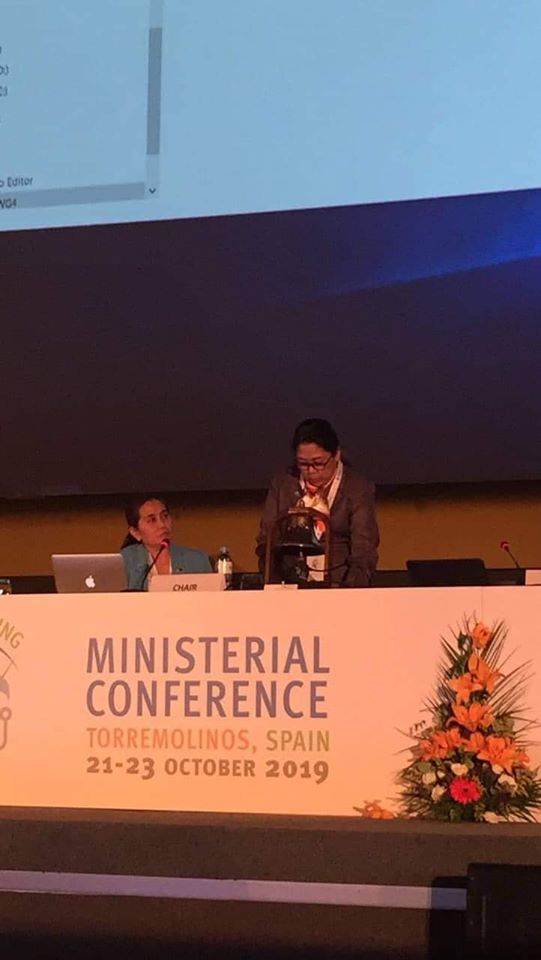Torremolinos, Spain — The Philippines was elected as the chair of the fourth FAO/ILO/IMO Joint Working Group (JWG) meeting on Illegal, Unreported, and Unregulated Fishing during the Ministerial Conference on Fishing Vessel Safety and Illegal, Unreported and Unregulated Fishing (IUUF) in Torremolinos, Málaga, Spain on 21 to 25 October 2019.
The nomination of the Deputy Administrator for Operations of the Maritime Industry Authority (MARINA) Engr. Nannette Z. Villamor-Dinopol was made by Spain, seconded by Chile and supported by Japan, European Commission and other members of the JWG. Engr. Villamor-Dinopol is also the head of the Philippine delegation. She is accompanied by the Maritime Attaché-London Philippine Embassy and representatives from BFAR, PCG, DFA and MARINA.
The JWG on IUUF was created to address issues that surround IUU Fishing. The proliferation of this activity affects legitimate fishers, including Filipino fisherfolk who rely on this trade as their source of livelihood. IUU Fishing also damages the marine environment when IUU fishers employ illegal and/or destructive equipment when catching fish. Since their activity is neither recorded nor reported, they will tend to engage in overfishing, thus destroying marine ecology. By establishing a unified understanding on the responsibilities, polices, and rules and regulations of flag, port, coastal and market states, these adverse effects shall altogether be reduced if not eliminated.
The Philippines has been actively participating in the JWG since its first session in 2000. The International Maritime Organization (IMO), Food and Agriculture Organization (FAO), and other maritime-related associations from the international community have been partaking since. Employers and workers had to be well-represented as well through the International Labour Organization (ILO). After its third session was held in 2015, the fourth JWG has convened, until its conclusion on 25 October 2019.
One of the important points in the agenda of the fourth session is the training of fishing personnel and states with fleet managing, food processing, and food distribution companies. This is a related component to the Cape Town Agreement (CTA) which is currently undergoing studies and consultations in the Philippines. Parties to the CTA are expected to pursue the safety and welfare of their fisherfolk.






